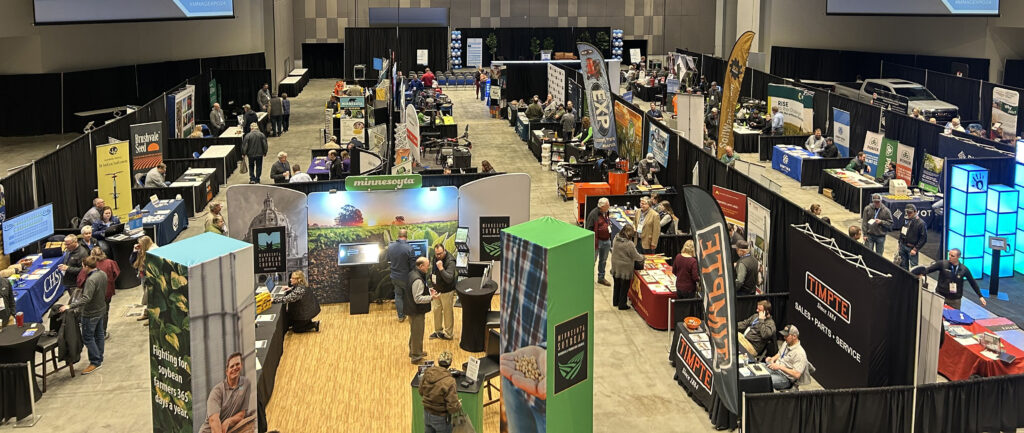During meetings with legislators and elected officials, directors from the Minnesota Soybean Growers Association (MSGA) are used to shaking hands and rubbing elbows with their representatives in St. Paul. That wasn’t the case Wednesday. Elbow bumps were more common, or just mere head nods and smiles, as concerns surrounding the coronavirus (COVID-19) gripped the Capitol. Gov. Tim Walz met with farmer directors and warned them of a bumpy road ahead.
“COVID-19 is going to change the way we do business,” Gov. Tim Walz told MSGA leaders in his Capitol office, adding, “We have the best public health system in the country.”
There’s no other way to put it: with a global pandemic casting a pall over the 2020 Legislative Session, MSGA’s 2020 Hill Visit was far from ordinary. By late Tuesday afternoon, MSGA leaders were informed that the American Soybean Association (ASA) had canceled its March D.C. Hill Visit, scheduled for next week. To begin the St. Paul Hill Visit, Minnesota Department of Agriculture Commissioner Thom Petersen briefed farmers on the budget forecast and MDA’s 2020 priorities. The mood was somber; Petersen predicted the projected $1.3 billion surplus was in grave peril as the coronavirus’ economic impact begins to take its toll.
“The next month is going to be disappointing as far as the budget goes,” he said.
It wasn’t all doom and gloom, however. MSGA leaders and Executive Director Joe Smentek gathered on Tuesday to discuss its latest policy agenda. Section 179 conformity topped the list. The omnibus tax bill mostly accomplished the stated goal of bringing Minnesota tax policy into conformity with the federal Tax Cuts and Jobs Act of 2017. However, changes to like-kind exchanges in the 2019 legislative session led to many unintended consequences for agriculture.

“We are searching for full conformity,” MSGA Secretary Darin Johnson told Minnesota Speaker of the House Melissa Hortman.
Fixing the Section 179 received broad bipartisan support Tuesday from lawmakers.
“Everyone wants to fix this,” Hortman said.
Rep. Julie Rosen (R-Vernon Center) said Section 179 left lawmakers with unfinished business in 2020.
“This is an issue. Even the House wants to tackle it,” Rosen said. “We tried to get it done last year, but we definitely need to get something done.”

MSGA leaders, led by President Jamie Beyer and Vice President Mike Skaug, also advocated for the Ag (Soy) Innovation Campus, soy-based road products, voluntary grain bin safety measures, protecting biodiesel, infrastructure upgrades and more. Later in the afternoon, MSGA hosted its annual Legislative Reception at the Minnesota History Center.
“This group is fundamental to Minnesota,” Walz said of MSGA.
There were lighthearted moments at the Capitol. Outside his office, Sen. Nick Frentz politely told another advocacy group they would have to wait their turn; he had a meeting with farmer constituents.
“Minnesota Soybean rules the universe!” Frentz said, smiling. “They always come first.”





